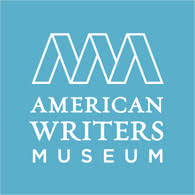It seems only a couple of short
weeks ago that I wrote an essay entitled, “Civil Discourse” that recounted the
civilized debates and exchange of ideas between David Axelrod and Tom Cotton
and between Roger Meyerson and Casey Mulligan.
In both cases, the opponents actually listened to each other, responded
with reasoned and data backed retorts and were not subjected to catcalls,
disruptions, or actual or implied threats from the audiences. The debates were lively, engaging and
entertaining and even laced with humor.
That blissful condition was
shattered this as a deranged Bernie Sanders volunteer opened fire on a group of
Republicans practicing for the annual Democrat/Republican baseball game. As of this writing, Steve Scalise remains
hospitalized, after having been seriously wounded. A review of his social media accounts and his
statements before the attack show that this was clearly a politically motivated
attack and that it was only the Capitol police and his bad aim that kept the
assault from becoming a massacre.
We are seeing an escalation in
political violence, and it is coming from the Left. And the Left does it in two ways—by actual
violence or by disruption and threat of violence. This week’s
is not really new. The Left’s
intimidation, threats, tolerance of violence and actual violence has been
building for some time as its political power has been steadily eroding since
2010. The new tactic seems to be, “If we
can’t win at the ballot box, we will win in the streets.” This modus operandi has been explicitly or
implicitly supported by liberal politicians, higher education, and media and
entertainment.
Universities have given a nod to
political violence by permitting thugs to overrun their institutions and use
force to silence points of view that run counter to liberal orthodoxy. The Berkeley riots, the disruptions and
threats against Charles Murray at Middlebury, and Heather MacDonald at McKenna
College without repercussion demonstrate higher ed’s complicity in the
shutdown, by force if necessary, conservative voices. Most disturbing was the mob action against
the professor at Evergreen State when he refused to go along with the student
demands that whites leave campus for a day.
Higher ed has also hired former terrorists that should have been
relegated to jobs at 7-11-- Bill Ayers and Kathy Boudin obtained faculty
positions despite their connections with the Weather Underground (Boudin
actually did time, which Columbia University whitewashed).
The media and Hollywood are in on
this, too. Undeterred by the shock of
Kathy Griffin’s hideous ISIS-like pose with the head of Donald Trump, Madonna’s
fantasy of blowing up the White House, and the performance in NY of Julius
Caesar depicting the assassination of Trump, Johnny Depp joked about “the last
time a president was assassinated.”
These are thinly veiled incitements hiding behind comedy and artistic
license and go beyond anything we have seen before. The Griffin episode was particularly
disturbing since the image of a beheaded Trump was unmistakably similar to the barbaric
images we have seen from ISIS and, along with the black, face covered garb of
Antifa, symbolically cements a relationship between radical Islam and the Left
(think Linda Sarsour). Even more disturbingly,
Scott Pelley asserted that the assassination attempt on Scott Scalise was, “to
some degree self-inflicted.”
Most shockingly, political
violence on the Left has been encouraged by our elected officials through their
statements….and sometimes through their silent assent. Tim Kaine implored Democrats to “fight in
the streets against Trump.” Loretta
Lynch asserted that the “most effective response to terrorism is love” but used
phrases like “taking to the streets” and “bleeding and dying” when she talked
about opposing Trump.
Which brings me to Barack Obama
and his tacit approval of political violence.
He piously called for “civility in discourse,” after the shooting of
Gabby Giffords (even though we now know that rhetoric had absolutely nothing to
do with the attack).
His embrace of the Muslim
Brotherhood was unnerving. But most
disconcerting was his support of the Black Lives Matter movement AFTER they openly chanted for the deaths of law
enforcement officers (“pig in a blanket; fry ‘em like bacon,” and “what do we
want? Dead cops. When do we want it?
Now.”). Whatever their complaint about
police officers, no group advocating violence should have been accorded respect
by the White House.
But an even more conspicuous
indication of his support for political violence is what he didn’t say. Barack Obama has never been bashful about
sharing his views—whether it was about local incidents like the Cambridge
police run in with Henry Louis Gates to the Trayvon Martin matter to the NCAA
tournament. And unlike most
ex-presidents, he has been a vocal critic of his successor from the start. Yet
when protests turned violent after November’s election, Obama stood
silent. And most tellingly, after the
Scalise shooting, Obama was mute, not a word, a statement or a tweet (and none
from Hillary Clinton or Chelsea either).
The man whose oft repeated phrase, “that’s not who we are” somehow could even find those words after the assault on Republicans.
When the Baltimore mayor gives
rioters “room to destroy,” when a college like Middlebury or Evergreen State
fails to take tough action against a mob, when leaders either in words or in
action either encourage or fail to condemn violence, and when leaders embrace
groups that use violence, we are headed down a slippery slope.
And this is all coming from the
Left. And it’s scary.



